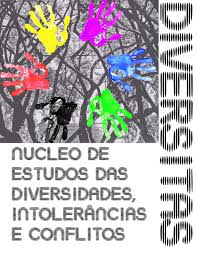Place as displacement in P.K. Page’s “brazilian House”.
Resumo
Dentro da perspectiva de “place” (lugar) “displacement” (deslocamento) como características do discurso pós-colonial, como também do conceito de “estranhamento” de Shklovski, este trabalho faz uma leitura de “Brazilian House” de P.K.Page, a fim de discutir como este poema reflete não apenas sua sensação de “deslocamento” em relação a seu “eu” canadense, ao confrontar o novo espaço físico que irá habitar no Rio de Janeiro e sua estranheza ao se deparar com o “outro” – os empregados da casa, com os quais irá interagir. O poema, como construção verbal, também irá se libertar do “eu” do poeta e, ao ultrapassar suas “memórias e associações pessoais”, seu “desejo de auto-expressão”, irá adquirir “sua própria realidade”, ampliando deste modo as implicações teóricas de “lugar” e “deslocamento” e, conseqüentemente, seu potencial interpretativo.
Abstract: within the perspective of place and displacement as features of post-colonial discourse, as well as of Shklovski’s concept of “defamiliarization, this paper presents a reading of P.K. Page’s “Brazilian House” in order to discuss how this poem reflects her sense of displacement, in relation to her Canadian self, as she confronts the new physical space she is going to inhabit in Rio, and her sense of estrangement as she confronts the other – the intriguing staff of servants she is going to interact with. The poem, as a verbal construct, will also free itself from the poet’s ego and, by moving beyond her “ private memories and associations” and her “desire for self-expression”, it will acquire “its own kind of reality”, thus amplifying the theoretical implications of “place” and “displacement” and, consequently, its interpretive potential.
Abstract: within the perspective of place and displacement as features of post-colonial discourse, as well as of Shklovski’s concept of “defamiliarization, this paper presents a reading of P.K. Page’s “Brazilian House” in order to discuss how this poem reflects her sense of displacement, in relation to her Canadian self, as she confronts the new physical space she is going to inhabit in Rio, and her sense of estrangement as she confronts the other – the intriguing staff of servants she is going to interact with. The poem, as a verbal construct, will also free itself from the poet’s ego and, by moving beyond her “ private memories and associations” and her “desire for self-expression”, it will acquire “its own kind of reality”, thus amplifying the theoretical implications of “place” and “displacement” and, consequently, its interpretive potential.
Texto completo:
PDF (English)Apontamentos
- Não há apontamentos.
ISSN eletrônico: 1984-5677
ISSN impresso: 1519-0994





















